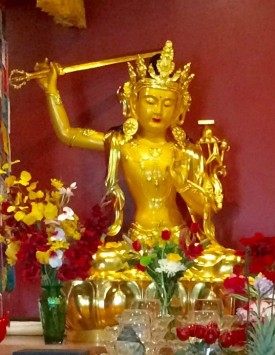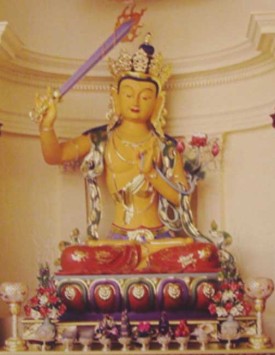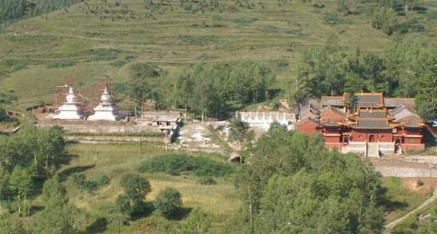[Chinese: 文殊师利菩薩 Wénshūshīlì Púsà; Japanese: Monju; Korean: 문수; Vietnamese: Văn Thù; Tibetan: འཇམ་དཔལ་དབྱངས། Jampelyang] is a bodhisattva associated with prajñā (transcendent wisdom) in Mahayana Buddhism. In Tibetan Buddhism, His name means “Gentle Glory”. His Sanskrit name means “Wonderful Virtue” or “Wonderful Auspiciousness.” Mañjuśhrī is also known by the fuller Sanskrit name of Mañjuśhrīkumārabhūta, literally “Mañjuśhrī, Still a Youth” or, less literally, “Prince Mañjuśhrī”. He is also known as Manjughosha or Sweet-voiced One.
Manjushri, the Bodhisattva of Wisdom, manifests from time to time to teach living beings. He is actually an ancient Buddha who is also known as the guru or teacher of seven Buddhas and is usually depicted as wielding a sword of wisdom that cuts through illusion. His bodhimanda or vajra throne is Wu Tai Mountain, one of the four sacred mountains in China. He is the foremost in the universe when it comes to wisdom. He was the only disciple of Shakyamuni Buddha that the Buddha could get to visit Venerable Vimalakirti when the great Venerable one was ill.
Je Tsongkhapa, Sakya Pandita, and Longchenpa were all considered Tibetan manifestations of Manjushri.
Manjushri (Wen-shu Pu-sa) Bodhisattva’s birthday is celebrated on or near the fourth day of the fourth lunar month each year.



